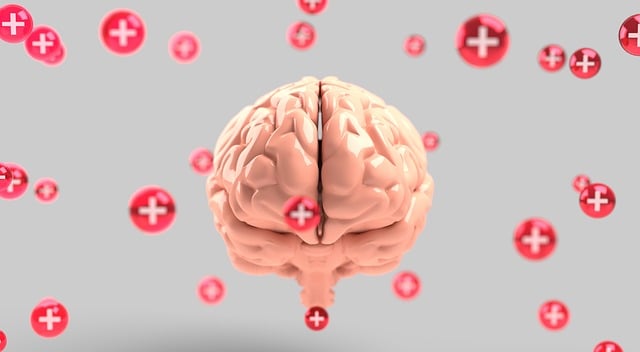Positive thinking exercises, exemplified by Castle Rock First Responders Therapy, are powerful tools for enhancing mental well-being and optimism. This program combines mindfulness practices, cognitive behavioral therapy, and conflict resolution skills to help first responders overcome stress and trauma. By challenging negative thoughts and adopting positive, realistic perspectives, individuals can improve outlook, boost confidence, and maintain resilience. Incorporating daily affirmations, gratitude, mindfulness, exercise, sleep, and hobbies, alongside therapy or support groups, can significantly enhance mental health and overall well-being.
“Unleash the power of positivity with our comprehensive guide to Positive Thinking Exercise Implementation. We explore how such exercises significantly contribute to mental well-being, especially in high-stress professions like first response. Using a compelling case study on Castle Rock First Responders Therapy, we illustrate the transformative impact of these strategies in overcoming stress and trauma. Learn practical tips for integrating positive thinking into your daily routine, fostering resilience, and enhancing overall mental health.”
- Understanding Positive Thinking Exercises for Mental Well-being
- Castle Rock First Responders Therapy: A Case Study on Overcoming Stress and Trauma
- Implementing Positive Thinking in Everyday Life: Practical Tips and Strategies
Understanding Positive Thinking Exercises for Mental Well-being

Positive thinking exercises are powerful tools designed to enhance mental well-being and foster a sense of optimism. These practices encourage individuals to challenge negative thought patterns and replace them with more positive and realistic ones. By integrating such exercises into their daily routines, people can significantly improve their overall outlook on life. For example, Castle Rock First Responders Therapy has successfully incorporated these techniques into its programs, helping professionals navigate the challenges they face with enhanced resilience and mental fortitude.
The benefits of positive thinking extend far beyond mere optimism. Regular engagement in such exercises can boost confidence levels, improve emotional regulation skills, and even contribute to better physical health. Mental Health Education Programs Design often emphasize the importance of these practices as a form of crisis intervention guidance, promoting a proactive approach to mental wellness. This holistic perspective not only empowers individuals during difficult times but also equips them with lifelong strategies for maintaining a positive mindset.
Castle Rock First Responders Therapy: A Case Study on Overcoming Stress and Trauma

The Castle Rock First Responders Therapy program serves as a compelling case study demonstrating the power of positive thinking exercises in overcoming stress and trauma among first responders. This initiative focuses on providing specialized support to law enforcement officers, firefighters, and emergency medical services personnel who frequently encounter high-stress and traumatic situations. The program incorporates various techniques, including mindfulness practices, cognitive behavioral therapy, and conflict resolution skills training, tailored to address the unique challenges faced by these individuals.
Through structured group sessions and individual counseling, Castle Rock First Responders Therapy fosters a safe space for participants to process their experiences, develop coping strategies, and enhance their resilience. The program also places significant emphasis on mental illness stigma reduction efforts, encouraging open dialogue and fostering empathy among colleagues. By combining social skills training with effective conflict resolution techniques, the therapy aims to equip first responders with valuable tools to navigate personal and professional challenges, ensuring they can continue to serve their communities effectively while maintaining their well-being.
Implementing Positive Thinking in Everyday Life: Practical Tips and Strategies

Incorporating positive thinking into your daily routine can be a powerful tool for enhancing mental health and overall well-being, as demonstrated by Castle Rock First Responders Therapy. It’s not just about being optimistic; it involves actively cultivating a mindset that focuses on the positive aspects of life, even in challenging situations. One practical tip is to start your day with positive affirmations or gratitude practices. Taking a few moments each morning to reflect on what you’re thankful for can set a positive tone for the day ahead. Additionally, practicing mindfulness and meditation helps individuals become more aware of their thoughts and emotions, allowing them to challenge negative thought patterns and replace them with more constructive ones.
Another effective strategy is to maintain a self-care routine that prioritizes mental health. This could involve engaging in regular physical activity, as exercise releases endorphins known for improving mood. Developing a consistent sleep schedule and engaging in hobbies or activities that bring joy are also essential components of a healthy self-care routine. Moreover, learning coping skills through therapy or support groups equips individuals with the tools to navigate stressful situations more positively. By integrating these practices into daily life, folks can foster a resilient mindset, enhancing their ability to cope and promoting mental health awareness.
Positive thinking exercises have proven to be powerful tools for enhancing mental well-being, as demonstrated by the successful Castle Rock First Responders Therapy case study. By integrating these strategies into daily routines, individuals can effectively manage stress and trauma, fostering a more resilient mindset. The practical tips outlined in this article offer a roadmap for implementing positive thinking, enabling readers to navigate life’s challenges with renewed optimism and resilience, much like the first responders who have benefited from this therapeutic approach.














